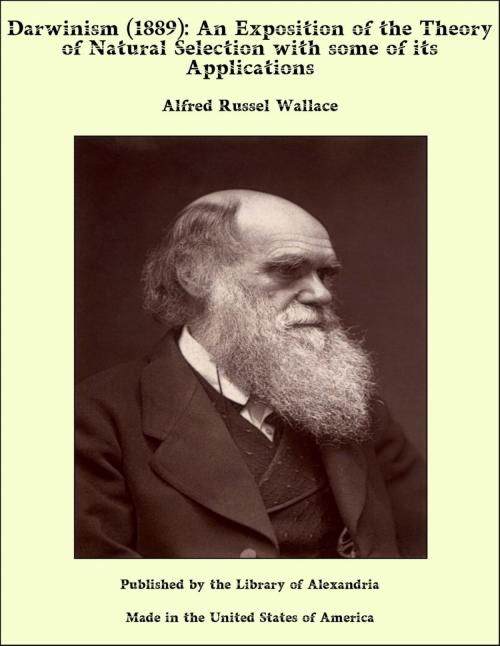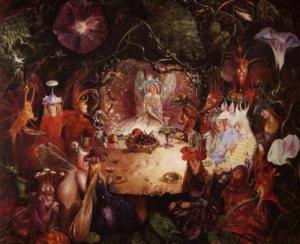Darwinism (1889): An Exposition of the Theory of Natural Selection with some of its Applications
Nonfiction, Religion & Spirituality, New Age, History, Fiction & Literature| Author: | Alfred Russel Wallace | ISBN: | 9781465542939 |
| Publisher: | Library of Alexandria | Publication: | March 8, 2015 |
| Imprint: | Language: | English |
| Author: | Alfred Russel Wallace |
| ISBN: | 9781465542939 |
| Publisher: | Library of Alexandria |
| Publication: | March 8, 2015 |
| Imprint: | |
| Language: | English |
The present work treats the problem of the Origin of Species on the same general lines as were adopted by Darwin; but from the standpoint reached after nearly thirty years of discussion, with an abundance of new facts and the advocacy of many new or old theories. While not attempting to deal, even in outline, with the vast subject of evolution in general, an endeavour has been made to give such an account of the theory of Natural Selection as may enable any intelligent reader to obtain a clear conception of Darwin's work, and to understand something of the power and range of his great principle. Darwin wrote for a generation which had not accepted evolution, and which poured contempt on those who upheld the derivation of species from species by any natural law of descent. He did his work so well that "descent with modification" is now universally accepted as the order of nature in the organic world; and the rising generation of naturalists can hardly realise the novelty of this idea, or that their fathers considered it a scientific heresy to be condemned rather than seriously discussed. The objections now made to Darwin's theory apply, solely, to the particular means by which the change of species has been brought about, not to the fact of that change. The objectors seek to minimise the agency of natural selection and to subordinate it to laws of variation, of use and disuse, of intelligence, and of heredity. These views and objections are urged with much force and more confidence, and for the most part by the modern school of laboratory naturalists, to whom the peculiarities and distinctions of species, as such, their distribution and their affinities, have little interest as compared with the problems of histology and embryology, of physiology and morphology. Their work in these departments is of the greatest interest and of the highest importance, but it is not the kind of work which, by itself, enables one to form a sound judgment on the questions involved in the action of the law of natural selection. These rest mainly on the external and vital relations of species to species in a state of nature—on what has been well termed by Semper the "physiology of organisms," rather than on the anatomy or physiology of organs
The present work treats the problem of the Origin of Species on the same general lines as were adopted by Darwin; but from the standpoint reached after nearly thirty years of discussion, with an abundance of new facts and the advocacy of many new or old theories. While not attempting to deal, even in outline, with the vast subject of evolution in general, an endeavour has been made to give such an account of the theory of Natural Selection as may enable any intelligent reader to obtain a clear conception of Darwin's work, and to understand something of the power and range of his great principle. Darwin wrote for a generation which had not accepted evolution, and which poured contempt on those who upheld the derivation of species from species by any natural law of descent. He did his work so well that "descent with modification" is now universally accepted as the order of nature in the organic world; and the rising generation of naturalists can hardly realise the novelty of this idea, or that their fathers considered it a scientific heresy to be condemned rather than seriously discussed. The objections now made to Darwin's theory apply, solely, to the particular means by which the change of species has been brought about, not to the fact of that change. The objectors seek to minimise the agency of natural selection and to subordinate it to laws of variation, of use and disuse, of intelligence, and of heredity. These views and objections are urged with much force and more confidence, and for the most part by the modern school of laboratory naturalists, to whom the peculiarities and distinctions of species, as such, their distribution and their affinities, have little interest as compared with the problems of histology and embryology, of physiology and morphology. Their work in these departments is of the greatest interest and of the highest importance, but it is not the kind of work which, by itself, enables one to form a sound judgment on the questions involved in the action of the law of natural selection. These rest mainly on the external and vital relations of species to species in a state of nature—on what has been well termed by Semper the "physiology of organisms," rather than on the anatomy or physiology of organs















